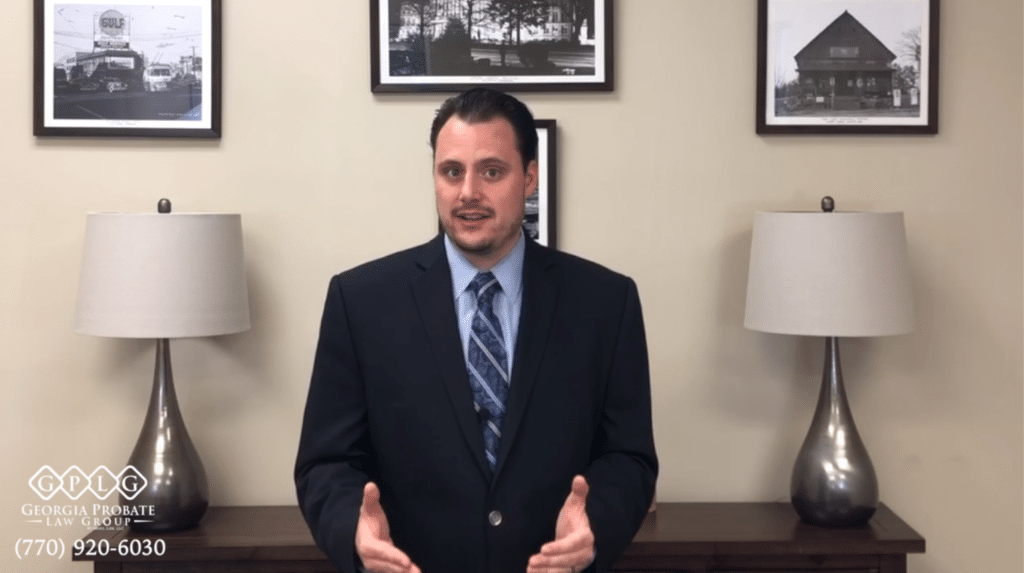We’re going to talk about three things in the estate process, and these three things are going to have a large impact on how complicated the estate is, how expensive it is, and how long it takes.
My name is Erik Broel, I’m the founder and CEO of Georgia Probate Law Group.
We’re a law firm and we focus exclusively on helping families after a loved one has passed away. We help them with uncontested estates, as well as contested and disputed and litigated situations.
Our topic today, the three things that I’m talking about are things most people don’t even know exist. Those three things are a probate bond, inventories, and how much power our executor or administrator has.
Let’s go through each one.

1. Bond
A bond is basically an insurance policy that’s typically taken out from a commercial insurance agency. It insures the estate against the bad actions of the executor or the administrator.
2. Inventory
An inventory is a formal report that’s long, that’s tedious to put together, that needs to be filed with the probate court. Your returns are an annual update to that report. They need to match to the penny, because if they don’t, the clerk will invite the executor or administrator to come down to the courthouse and explain to the judge where the discrepancy is.
3. Powers
Finally, and most importantly the powers that our executor or our administrator has. The default rule is very limited powers.
They can collect assets of the estate, they can protect assets of the estate, and that’s about it. If we need to sell something, if we need to exchange an asset out for another one, maybe take care of some securities and exchange those offer to cash, sell a house, sell a car, or if we need to pursue something like pursue a lawsuit, a wrongful death lawsuit. All of that is outside of the default powers that an executor or an administrator has, which means that in order to engage in those activities, we would have to go get court permission.
That is a pretty involved process. We have to file a petition. Notice has to go out, we have to wait to see if anyone objects. And then the court is probably going to order a hearing on the whole thing.
So, we’re talking about a larger expense to the estate, and a delay of one, two, three, or more months for this petition to get granted, assuming there’s no objections. If there are objections, even longer. It really can hamper our decision making authority that our executor or our administrator has.
Those are our default rules, is we’ve got to do the bond, got to do the inventory, don’t have much power.
How do we get around that?
Well, the first way is we could look to the will and see if the will provides any information or waives any of these three things. If it does, then that’s great. If the will is silent, or there is no will, then we have another option.
We can look to get the unanimous agreement of everyone who’s important in the case. Either the heirs, or the beneficiaries. If we’re able to secure the unanimous agreement, then the court will have the authority to issue those waivers, one or more of them. The court may waive the bond, the inventory, or grant expanded powers. But if even one person doesn’t want to agree, well, that means we can’t do it, because it requires unanimous consent.
Even then, the unanimous consent doesn’t guarantee we get it, it simply authorizes the court to waive it. The court may still choose not to.
This is a very important topic, it can have a big impact on the estate. I appreciate you watching today, if you have any questions about your own situation, please feel free to give us a call at (770) 796-4271, we’d love to help you.
Disclaimer: The information above is provided for general information only and should not be considered legal advice. Our probate attorneys provide legal advice to our clients after talking about the specific circumstances of the client’s situation. Our law firm cannot give you legal advice unless we understand your situation by talking with you. Please contact our law office to receive specific information about your situation.



























